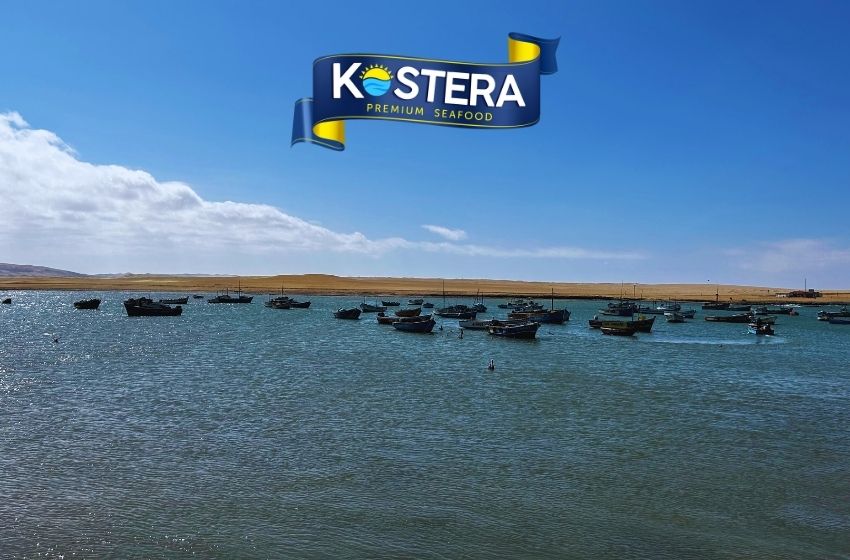
The Treasure of the Peruvian Sea and KOSTERA’s Role in Bivalve Mollusks
The Peruvian coast, enriched by the cold, nutrient-rich waters of the Humboldt Current, is one of the most productive marine ecosystems in the world. This sea generates exceptional biodiversity, including bivalve mollusks such as oysters, clams, and baby clams. The quality of these marine resources is highly regarded both in Peru and in international markets, where the flavor and nutritional properties of Peruvian mollusks captivate consumers.
In this context, KOSTERA has taken on a crucial role as a pioneer in the purification of bivalve mollusks from the Peruvian sea, ensuring that every mollusk meets the marine food safety standards necessary for safe consumption and export.
The Biodiversity of the Peruvian Sea
The Peruvian sea is a complex and rich ecosystem that supports not only the local economy but also Peru’s culinary identity. The diversity of bivalve mollusks inhabiting these waters allows for a wide range of flavors and textures that Peruvians have expertly incorporated into their traditional and high-end cuisine. From ceviche to sophisticated dishes, clams, oysters, and razor clams have become essential ingredients in the country’s gastronomy.
Beyond their culinary appeal, these marine mollusks are an important source of nutrients. Rich in proteins, vitamins, and minerals such as iron and zinc, they are essential for a balanced diet. Their low fat content and omega-3 fatty acids also make them a healthy option.
The International Demand for Peruvian Bivalve Mollusks
The flavor and quality of Peruvian bivalve mollusks have crossed borders, with countries such as Spain, the United States, and China among the leading importers. Demand for mollusks such as clams and oysters has particularly increased in Asia, where they are key ingredients in traditional dishes like hot pot.
This international interest reflects not only the quality of the product but also KOSTERA’s commitment to meeting marine food safety requirements. KOSTERA’s bivalve mollusk purification facilities ensure these products reach global markets free of contaminants and meet the strictest quality standards.
KOSTERA and the Conservation of Marine Resources
As a company dedicated to the purification of marine mollusks in Peru, KOSTERA recognizes the importance of preserving the biodiversity of the Peruvian sea. Its focus is not only commercial but also environmental, contributing to sustainable fishing and production practices that respect the balance of the marine ecosystem. By implementing responsible practices, KOSTERA helps protect a natural resource that is essential for future generations and the country’s economy.
Conclusion
The Peruvian sea offers unparalleled richness in species and flavors that shine in both cuisine and nutrition. Thanks to the commitment of companies like KOSTERA, Peru not only exports high-quality mollusks but also safeguards its marine resources, ensuring these products are valued and recognized worldwide. The combination of flavor, sustainability, and responsibility makes the Peruvian sea and its bivalve mollusks a true treasure for national and international markets.
Referencias Bibliográficas
FAO. (2010). Depuración de bivalvos: aspectos fundamentales y prácticos. FAO.
Ramón, M. y Galimany, E. (2022). El océano que queremos: ciencia oceánica inclusiva y transformadora. Contribución de los bivalvos a los servicios ecosistémicos del litoral. Institut de Ciències del Mar, CSIC, Barcelona.
